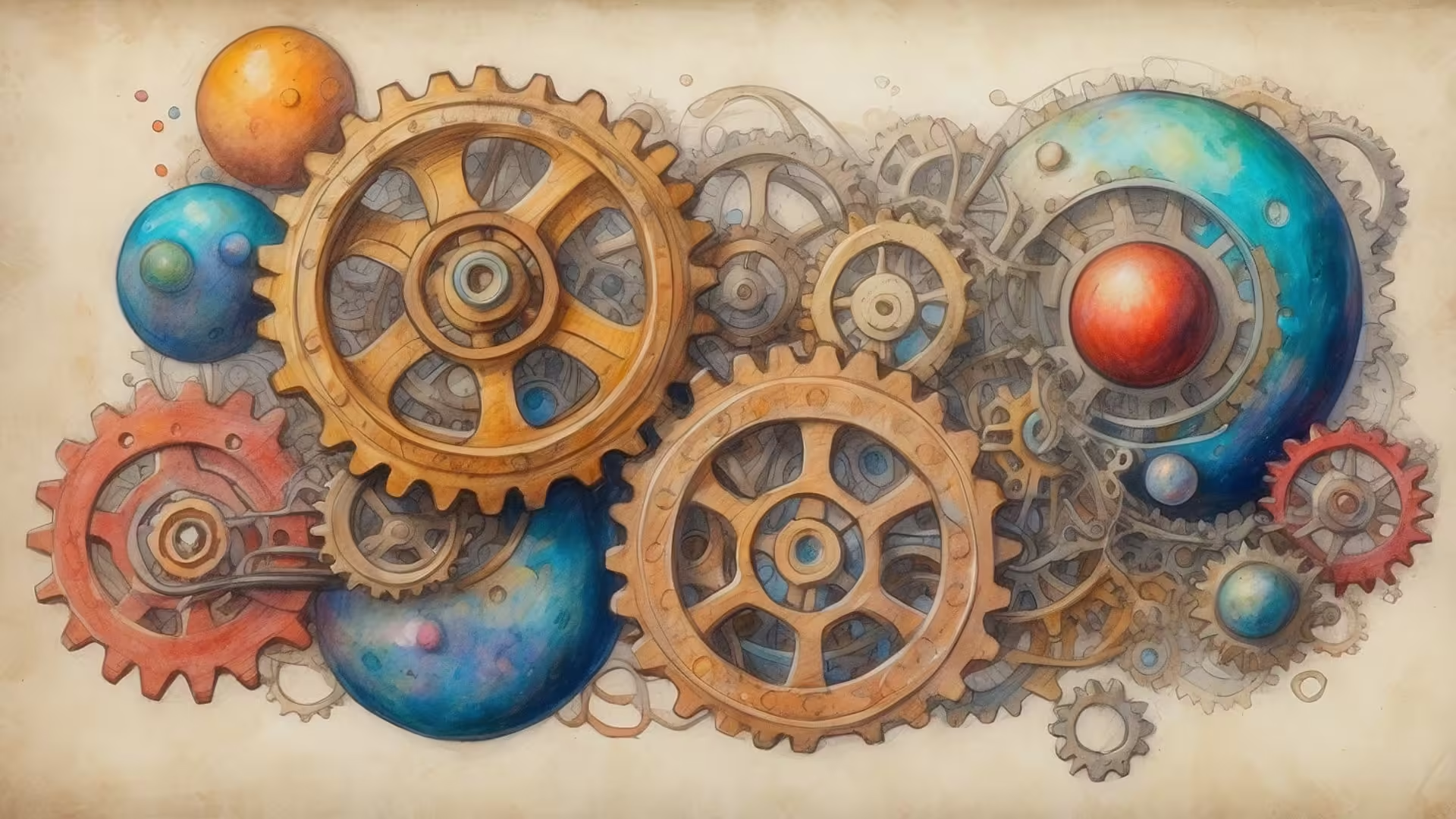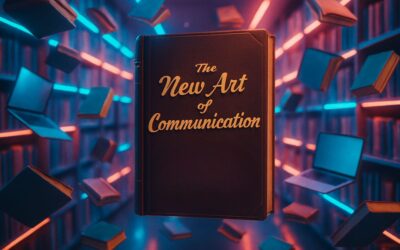The Gist
Does Everything Happen for a Reason? Exploring Fate, Chance, and Purpose
The phrase “everything happens for a reason” is something you’ve probably heard before—whether it’s during a tough time or after a surprising turn of events. For some, it’s a comforting thought, a way to make sense of life’s ups and downs. For others, it’s a notion that brushes off the randomness and unpredictability of the world. So, does everything really happen for a reason, or do we impose meaning on events after the fact?
Let’s explore the various perspectives that shape how we answer this question.
The Belief in Fate and Destiny
Many people find solace in the idea that life follows a predetermined path. From this viewpoint, everything—no matter how trivial or life-changing—happens for a specific reason that fits into a larger plan. This belief is often linked to religious or spiritual views, suggesting that a higher power or the universe is orchestrating our lives with purpose.
For example, if you lose a job, you might later see it as a stepping stone to a better opportunity that you wouldn’t have otherwise pursued. The concept of destiny often hinges on the idea that events, even the painful ones, lead to growth or set us on the right path. In many ways, it’s a way to cope with adversity, offering hope that something better is coming.
But does this view resonate with everyone? Not always. It can be comforting to think that our struggles have meaning, but it also raises questions about free will. If everything is predestined, where do our personal choices come into play?
The Role of Chance and Randomness
On the flip side, there’s the idea that life is full of randomness—that things simply happen, and we assign meaning afterward. From this perspective, the world isn’t governed by fate but by chance. Things like meeting a new friend or getting stuck in traffic are not part of some divine plan but the result of random, uncontrollable factors.
Those who embrace this view might argue that while life’s events may seem connected in hindsight, they’re not necessarily part of a preordained path. A flat tire on the way to a job interview is just bad luck, not a sign that you weren’t meant to get that job.
This perspective can be freeing for some, as it puts control back in the hands of the individual. Rather than waiting for fate to guide you, you make your own choices and live with the consequences, for better or worse.
Finding Meaning in the Aftermath
Even if life isn’t governed by fate, we are meaning-making creatures. We naturally seek patterns and connections in the events that shape our lives, and in doing so, we often create our own narratives. Think of it this way: when something difficult or unexpected happens, it’s natural to reflect on how that event fits into the bigger picture of your life. You might say, “If that hadn’t happened, I wouldn’t be where I am today.”
This idea doesn’t necessarily rely on fate but on the human need to understand and find meaning in the things that happen to us. We shape our experiences into stories, giving them purpose—even if that purpose wasn’t apparent at the time.
Balancing Both Views
Interestingly, many people hold a combination of both views. We might see certain things as destined or meant to be, especially when they lead to significant, positive outcomes. But at the same time, we recognize the randomness of life and understand that not everything follows a clear, intentional path.
Take relationships, for example. Many people describe meeting their partner as “meant to be,” while also acknowledging that their chance encounter could have easily been missed. We often use fate as a way to explain those serendipitous moments that seem too perfect to be mere coincidence.
In reality, whether or not everything happens for a reason might not be the most important question. What matters more is how we respond to life’s events, how we make sense of them, and how we grow from them.
What Do You Believe?
At the end of the day, whether you believe in fate, chance, or a combination of both, the way we interpret life’s events plays a major role in how we move forward. Do you find comfort in the idea that everything happens for a reason, or do you lean toward the randomness of life? Either way, the real power lies in how we create meaning out of the experiences we have—whether they seem planned or purely accidental.
So, what do you think? Does everything happen for a reason, or is it up to us to find the reasons afterward? The answer may be more personal than universal, but it’s certainly worth pondering as we navigate the twists and turns of life.
Let’s Talk
So, does everything really happen for a reason? It’s such a common phrase, but when you start to dig deeper, it’s clear that it’s not so simple. I mean, think about the last time something unexpected happened to you—maybe you missed a flight, or an opportunity fell through. In the moment, it probably felt frustrating, like life was just throwing random obstacles in your path. But then, later, you might have found yourself thinking, “Well, maybe that happened for a reason.” It’s funny how we often try to make sense of things in hindsight, isn’t it?
But here’s the question: Do we say this because we believe in some grand plan, or are we just trying to give ourselves some peace of mind after life throws us a curveball? That’s where things get interesting. It’s not always about whether everything actually happens for a reason; sometimes it’s more about needing to believe that it does, especially when things get tough. It’s like our way of making sense of chaos. But does that make it any less valid?
For me, I think it depends on the situation. There are times when I look back and think, “Wow, if that hadn’t happened, I wouldn’t be where I am today.” Those moments definitely feel like they were meant to be. But then, there are other moments where, honestly, things just feel random—like when something goes wrong for no reason at all, and it’s hard to find any meaning in it. Maybe you’ve experienced something similar. Do you ever find yourself trying to connect the dots after the fact, even when you’re not sure there’s a bigger plan?
One of the things we didn’t really touch on earlier is how much this belief can vary depending on what’s happening in our lives. When things are going well, it’s easy to say everything is happening for a reason, right? It makes the good times feel like they’re part of a bigger picture. But when things go wrong—whether it’s a job loss, a breakup, or something more serious—it’s a lot harder to buy into that idea. In those moments, randomness feels more real than fate. And yet, it’s often after these tough times that we start to see patterns or meaning emerge. Do you think that’s because we want to see the connections, or are they really there?
Another angle to consider is how we respond to events. Even if life is random and chaotic, we’re the ones who create meaning out of it, right? Maybe the whole point isn’t that things happen for a reason, but that we find reasons after they happen. That’s a pretty empowering idea, if you think about it. It puts us in control of how we interpret our experiences. Instead of waiting for fate to hand us a plan, we get to decide what matters and why.
So, what about you? Do you tend to see life as something guided by fate, or do you think it’s all a bit more random? And how do you handle those moments when things seem completely out of your control? Whether we believe everything happens for a reason or not, the way we process life’s events can shape how we move forward. Maybe the real power lies in our ability to make sense of the chaos, whether or not there was a reason behind it all in the first place.
That’s something worth thinking about, don’t you think?
Let’s Learn Vocabulary in Context
Let’s dive into some of the key vocabulary and phrases we touched on in our discussion about whether everything happens for a reason. Understanding these words in context can help us not only use them in conversations but also think more deeply about how they apply to real life.
First up is predetermined. We used this word when talking about fate and destiny, where events in life are seen as predetermined or set in motion by some higher power. When something is predetermined, it means it’s decided in advance and will happen no matter what. In everyday use, you might say, “It feels like my career path was predetermined because I’ve been interested in this field since I was a kid.” But of course, that raises the question: Do we really believe in things being set in stone, or do we have more control than that?
Another key word is randomness, which we explored when discussing the idea that life might just be a series of unpredictable events with no larger plan. Randomness refers to things happening without any order or reason. It’s something we all experience when things go unexpectedly, like when you bump into an old friend at a place you’d never expect. You could say, “I don’t believe everything happens for a reason. I think life is full of randomness, and it’s up to us to make the most of it.”
We also talked about free will, which is the idea that we have the freedom to make our own choices, regardless of fate or destiny. In free will, it’s all about personal responsibility—our lives are shaped by the decisions we make. This concept is often contrasted with fate. For example, you could use it in real life like this: “I believe in free will, so I think we have the power to shape our own destiny.”
Then there’s retrospect, which comes up when we look back at past events and try to make sense of them. Often, we don’t see how everything connects until we reflect on it later. In retrospect, we sometimes realize that what seemed random at the time actually led to an important outcome. You might say, “In retrospect, losing that job was the best thing that could have happened because it led me to a better opportunity.”
Finally, we have narrative, which is the story we tell ourselves about our lives. Whether we believe in fate or randomness, we all create a narrative to make sense of what happens to us. It’s how we explain events and give them meaning. You can use it in your own life by saying something like, “The narrative I’ve created for myself is one of resilience—I always find a way to bounce back.”
Now, here are a couple of questions to think about: How much of your life do you think is shaped by free will versus randomness? And when you look back in retrospect, do you tend to create a narrative that makes everything seem like it happened for a reason, or do you accept that some things are just random? These questions can really get us thinking about how we view our own experiences!










0 Comments